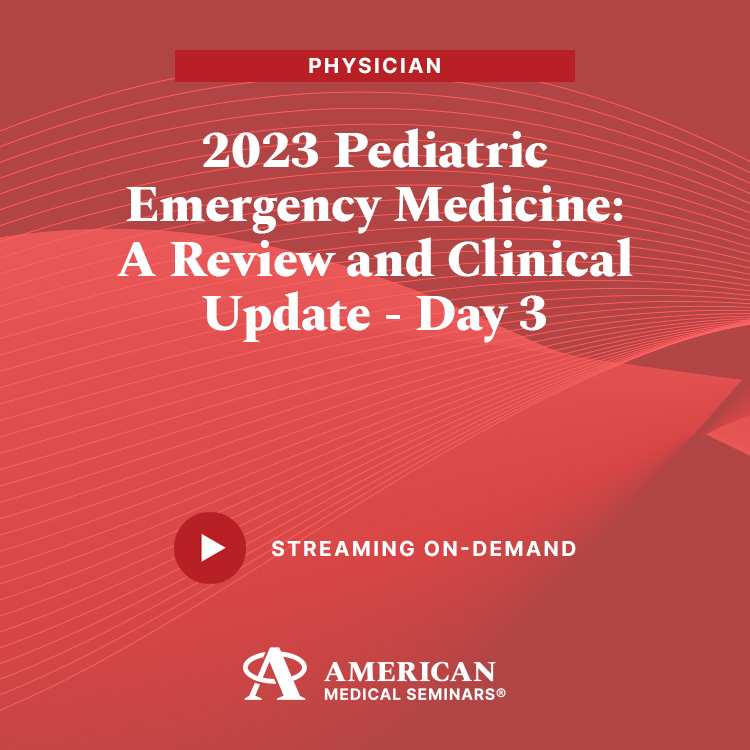Title: Pediatric Emergency Medicine: A Review and Clinical Update – Day 3 (Physician)
Faculty: John Loiselle, M.D., F.A.A.P.; Rakesh Mistry, M.D., M.S.; Richard Scarfone, M.D., F.A.A.P.
Release Date: 7/1/2023 Expiration Date: 7/1/2026
Day 3
The Febrile Young Infant (Birth – 2 months)
Upon completion of this session, using data from landmark studies, the participant should be able to: GL, COMP
- Evaluate and treat the febrile infant who is less than eight weeks of age.
- Summarize those serious bacterial infections for which the febrile infant is at risk.
- Appraise recent data suggesting that a subset of low-risk febrile infants may be managed as outpatients, without CSF analysis, as per Guidelines of managing the well-appearing infant.
Ingested and Aspirated Foreign Bodies
Upon completion of this session, using evidence-based medicine from the CDC and other sites, the participant should be able to: COMP, EBM
- Distinguish the differences in clinical presentation between ingested and aspirated foreign bodies in children.
- Select appropriate imaging strategies for detection of ingested and aspirated foreign bodies and subsequent indication for specialty consultation.
- Relate the most common complications associated with ingested and aspirated foreign bodies.
Infants Behaving Badly
Upon completion of this session, using information from review articles, the participant should be able to: EBM, GL, COMP
- Develop a complete differential diagnosis for critically ill infants.
- Summarize the key management strategies in actual cases of infants presenting to a pediatric emergency department as per the referenced EBM and Guidelines.
- Administer appropriate diagnostic studies in the evaluation and management of infants with interesting and uncommon diagnoses.
Approach to the Febrile Young Child
Upon completion of this session, the participant should be able to: EBM, GL, COMP
- Develop appropriate management strategies for febrile young children (2-24 months).
- Determine which febrile young children are at low risk for serious infections, using evidence-based guidelines.
- Assess the role of recent evidence and vaccination programs when evaluating occult infections in febrile young children.
Upper Extremity Fractures in Children
Upon completion of this session, using clinical practice guidelines, to include the Salter-Harris Fracture Classifications, the participant should be able to: COMP, GL
- Develop an age-appropriate evaluation of upper extremity fractures in children.
- Detect common upper extremity fractures using common diagnostic and radiographic techniques.
- Evaluate indications for emergent and outpatient orthopedic consultation in children with upper extremity injuries.
- The receipt for any incentive-associated purchase will designate the value of the gift card separately from the cost of the learning activity.
- This incentive may have implications on your tax reporting obligations. Any reimbursed amount must be declared as personal income for tax purposes.

